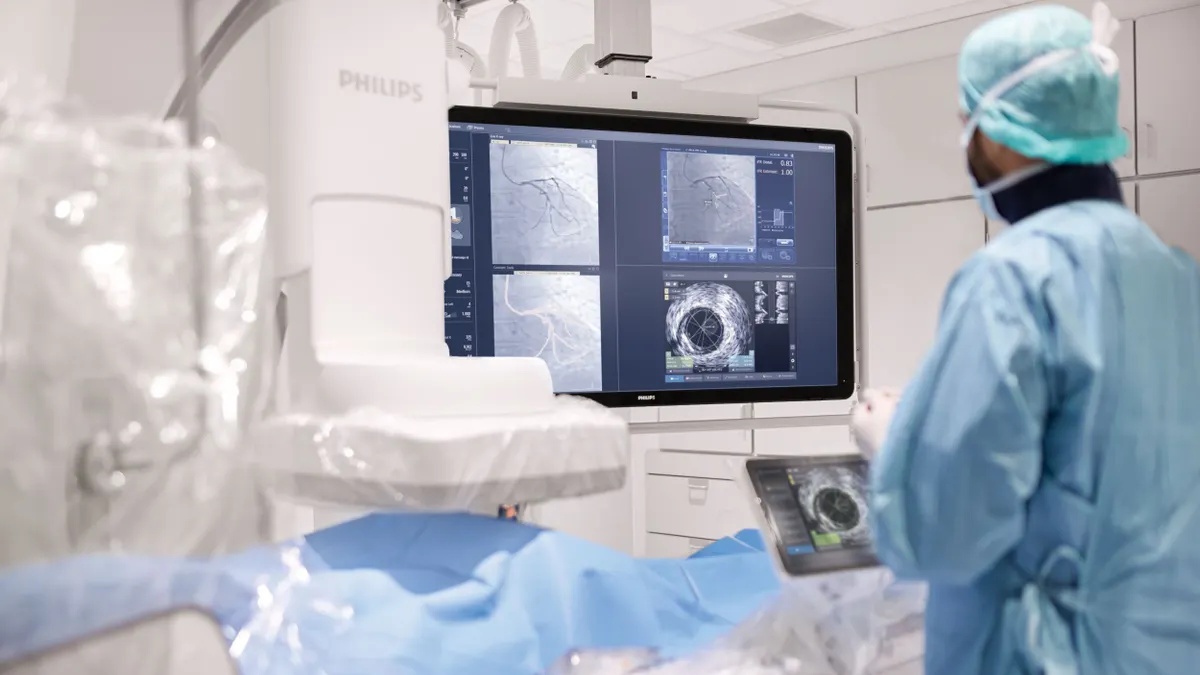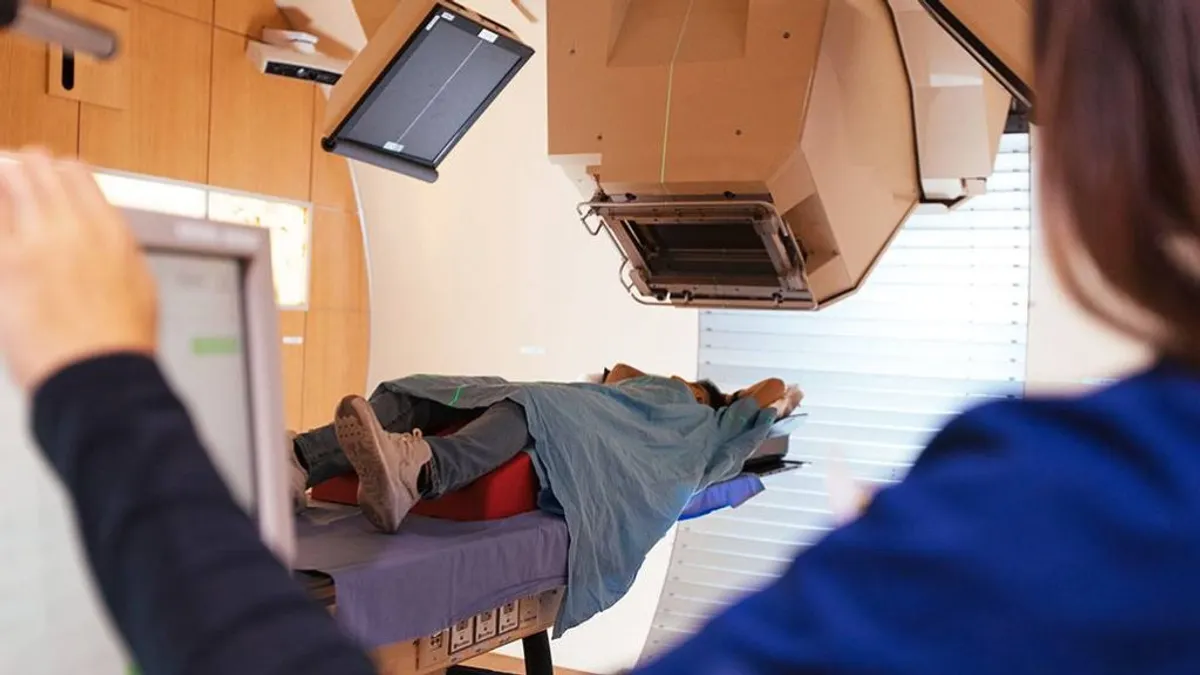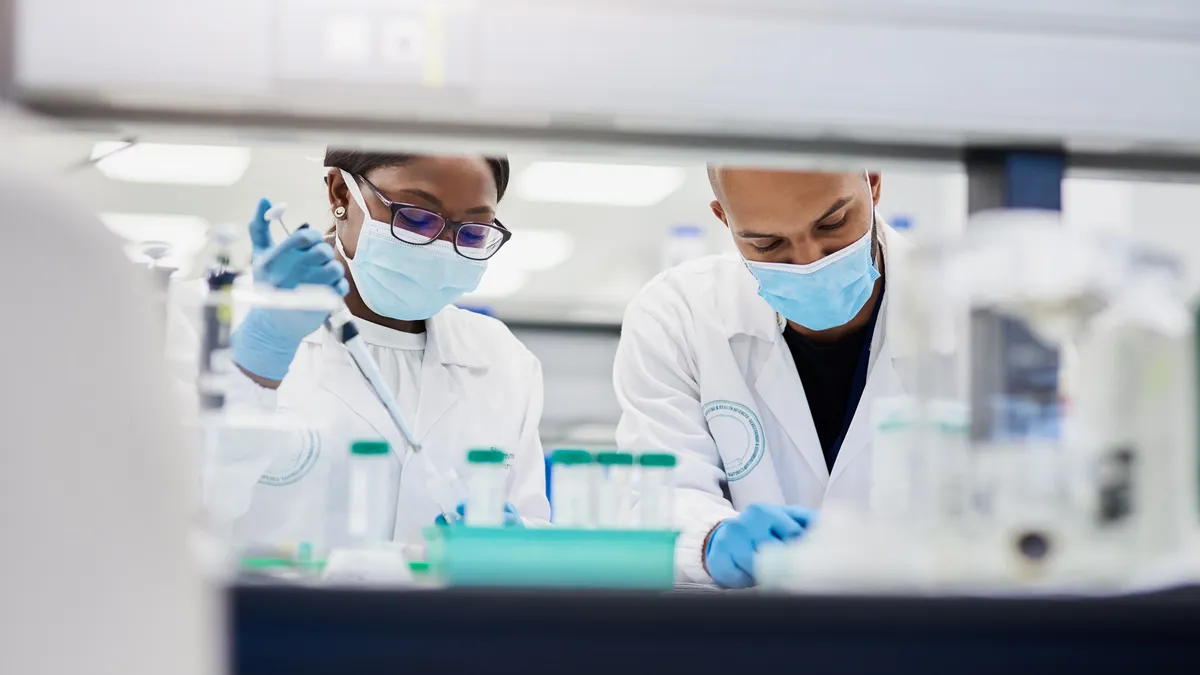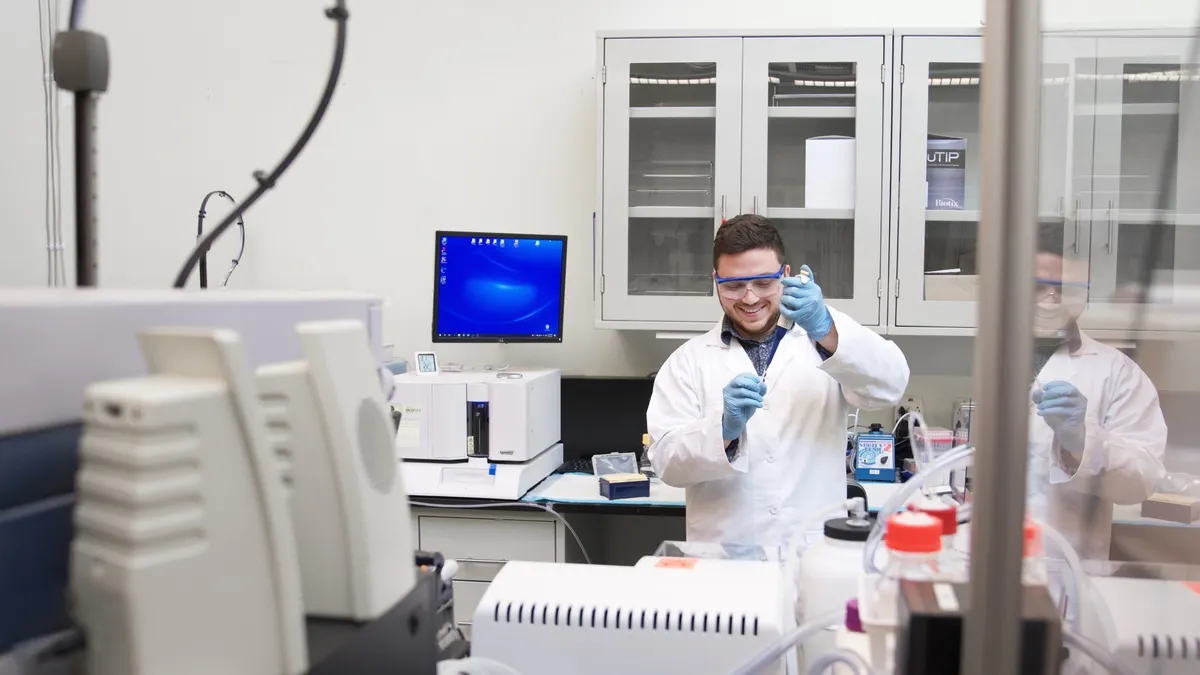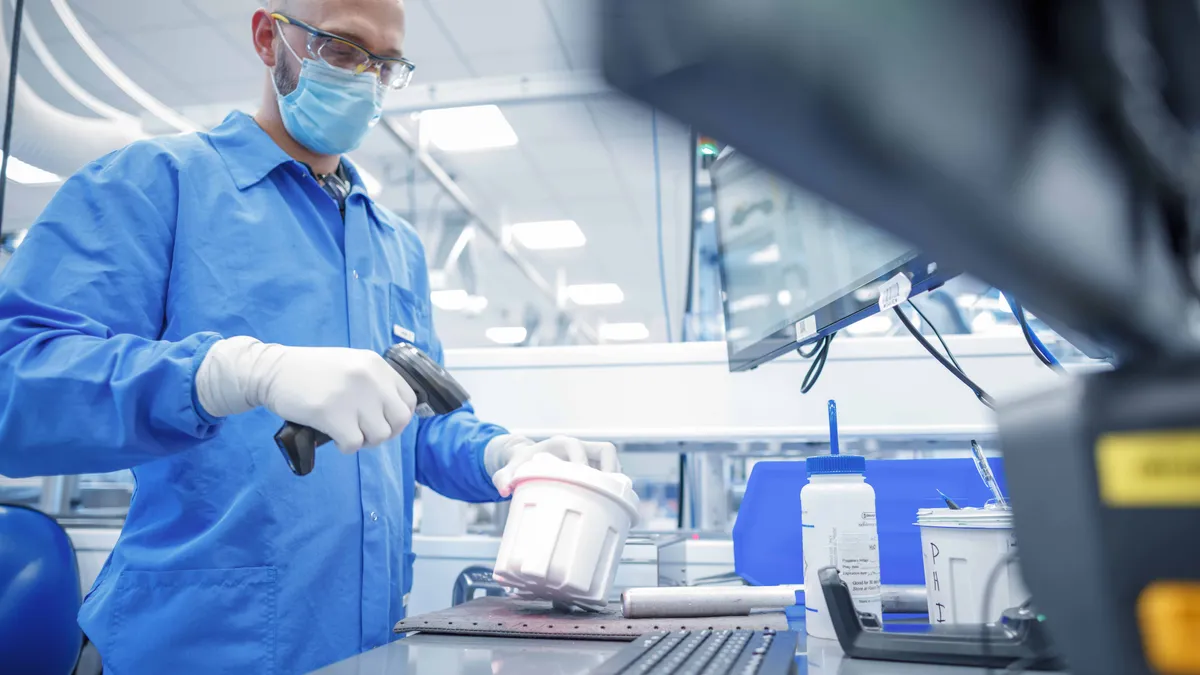Becton Dickinson secured approval from the Food and Drug Administration in 2020 for a version of its human papillomavirus test that can provide more information on the genotypes of the virus, which can inform a patient’s risk of cancer. Last year, the company also started marketing an at-home version of its HPV test in Europe.
With the pandemic disrupting routine testing, more diagnostics companies are looking to offer at-home versions of their tests.
Molly Broache, BD’s associate director of medical affairs for the U.S. region and a women’s health nurse practitioner, talked about the testing options BD now offers and where that’s headed in the future.
This article has been edited for length and clarity.
MEDTECH DIVE: I’ve seen recently that some routine testing decreased after the start of the pandemic. Have you seen that trend in women's health?
MOLLY BROACHE: I know that there has been a drop in screening for both HPV and for other [sexually transmitted infections]. The CDC said, in the most recent data I saw, that one in five Americans now has some STI whether that be HPV or chlamydia or gonorrhea. There's a reason for that large number of infections, because for one to two years people were not coming in for that routine care.
We've heard from physicians we partner with at BD, [who] are having to do more diagnostic and incisional procedures, probably because people have had these lingering, persistent HPV infections that weren't identified because they skipped two or three years of routine screening.
Luckily, I think patients aren't yet at the point where they get cancer. But it's still a more progressed pre-cancer when you let the lesions formed by HPV progress over multiple years.
In 2020, BD won FDA approval for an HPV assay with extended genotyping. What’s the difference between that test and other tests on the market?
What is unique about this test is we are the only FDA-approved HPV assay that does something called an extended genotyping. So we look for types of HPV outside of what other tests look for which is essentially [genotype] 16, 18 and pulling everything else together in a group.
One of the important ones that we like to point out that we look for in this test is HPV 31. What's important [is that] this type of HPV actually poses a higher risk for cervical pre-cancer, [and] you are losing out on information if you're running one of the other FDA-approved HPV tests that does something called partial genotyping.
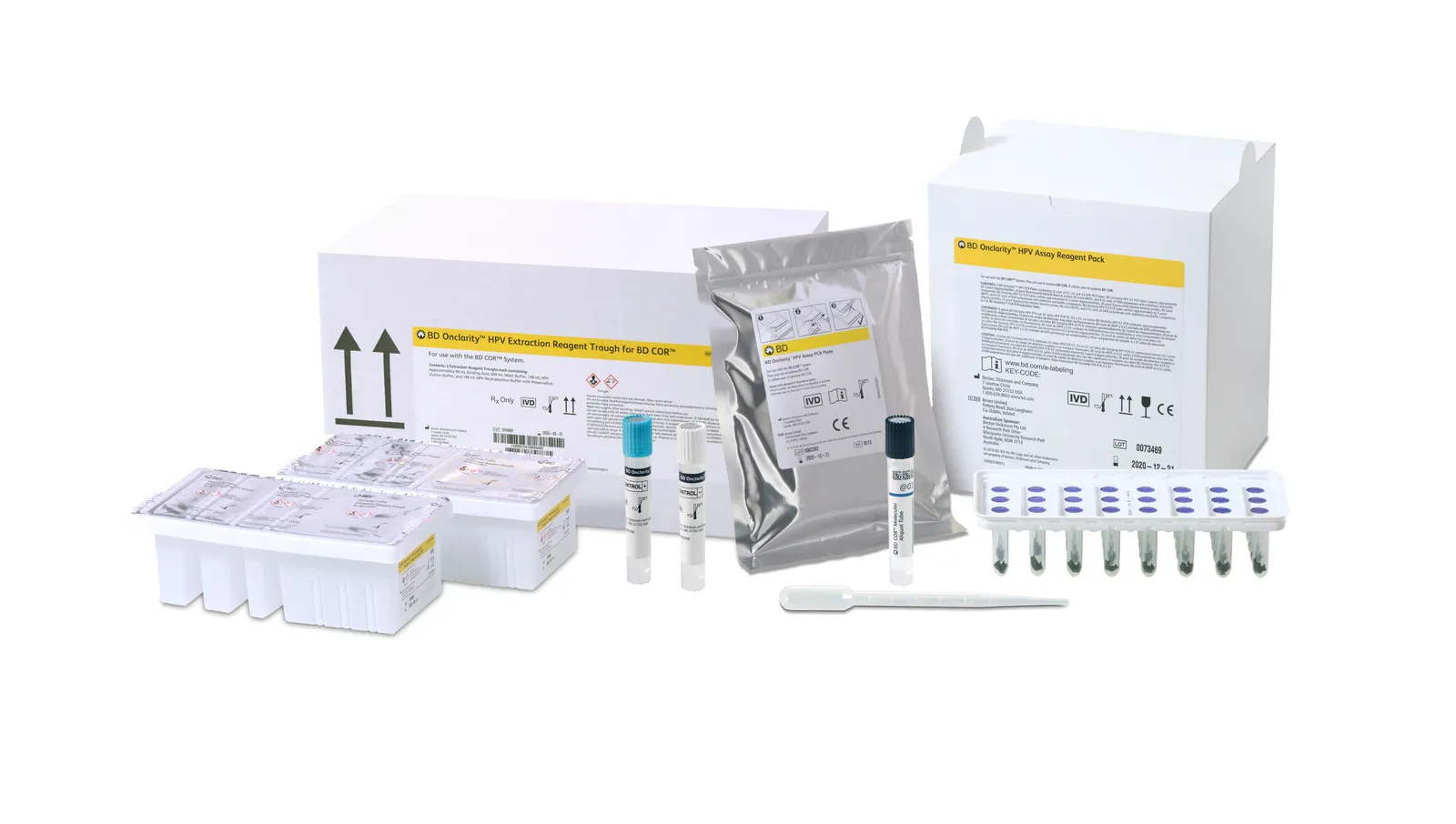
What does that mean for treatment?
When you pass [a] 4% risk of cervical pre-cancer from the type of HPV you have, physicians take what we call a diagnostic procedure or colposcopy, because the HPV test is still a screening test. What the doctor is doing is they're doing a closer examination of the cervix, looking for any abnormal areas and they'll take a full biopsy of those abnormal areas.
The problem is if you're doing a test where that HPV 31 is not individually identified and it's hidden in that pool, you could end up releasing the patient and instructing them to come back in a year. Not everybody comes back in a year.
Even if their pap smear is actually normal, if they are positive for HPV 31, they have a high enough risk that you would want to send them for further testing. If the colposcopy is abnormal, that’s when treatment would occur.
You sold more PCR testing machines during the COVID-19 pandemic. As Covid testing has declined, what happens there?
The BD COR [high-throughput diagnostic] system is a newer approval, but the BD Max system, a lot of customers have bought for COVID testing. And now that their COVID volumes have gone down, they have said “oh, so what else do you guys offer?” We said, “Well, we have a whole women’s health portfolio.”
The nice thing about all those tests is that they are FDA-cleared tests. So all of them had to undergo rigorous clinical trials in order to get approval by the FDA. It took years and years on BD’s end. Some reference labs will run something called laboratory developed tests that are not FDA approved.
You have a CE-mark for an at-home version of your HPV test in Europe. What are your plans for the U.S.?
That is something that we are hoping to get into the U.S. We would have to get the FDA approval for it.
One of the big issues with cervical cancer screening is not everybody is able to access the screenings. We're always looking for ways to make our tests more accessible. So that is something we're working on.
COVID has shown us that patients really liked this option to collect samples in the convenience of their home, send them back and then the physician just follows up if there's an abnormal result.
Do you have any other at-home tests?
Other than our BD Veritor COVID test, nothing in the women's health space yet. But really, I think COVID and our Veritor system and that success has shown us that self-collection is the way to go.
I do anticipate in the future we will have claims for hopefully STD tests as well, I just don't have an exact timeline on it. I think with the FDA, they want to make sure that we have a good process for follow-up of abnormal results. Identifying somebody as positive is one thing; you want to make sure they're actually being treated.
I imagine in my next five to 10 years at BD, I could see a bunch of our women's health tests, hopefully or potentially being offered with that at-home scenario.







